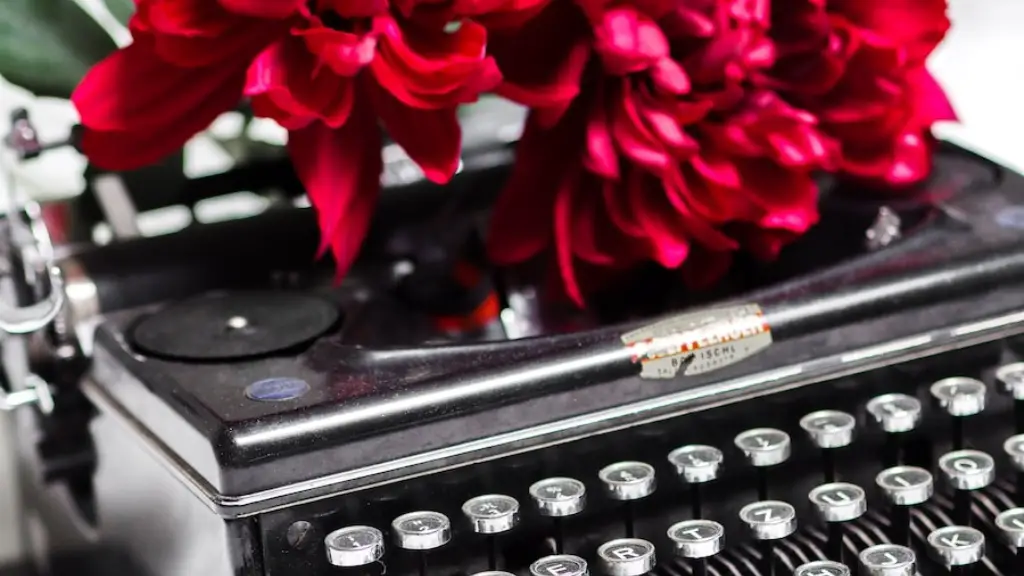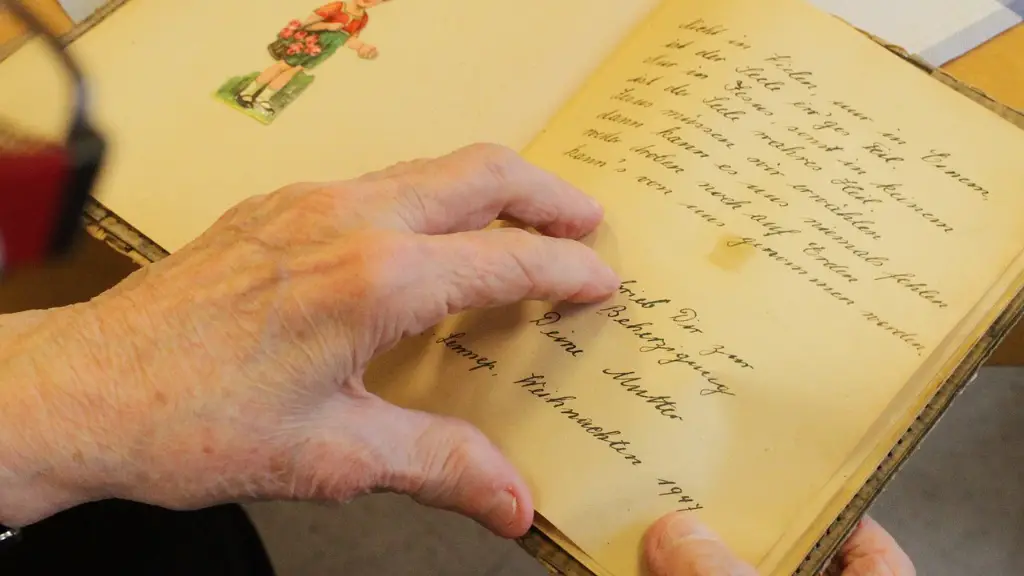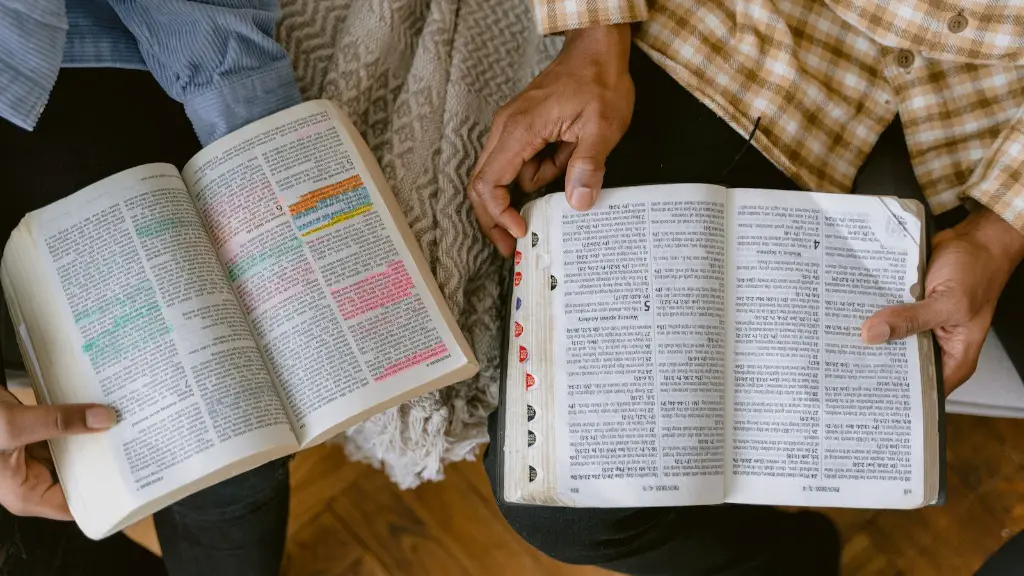What is Poetry?
Poetry is a form of literature that uses carefully chosen language to convey its message. It often uses figures of speech, rhyme, and meter to give certain words extra layers of meaning. Poetry is often divided into three categories: lyric poetry, narrative poetry, and dramatic poetry. Examples of lyric poetry include sonnets, haikus, and free verse poems. Examples of narrative poems are ballads, epics, and pastoral poems. Dramatic poetry is often used in plays and other theatrical works.
Although poetry has been around since the time of ancient Greece and Rome, modern-day poetry is often used to express emotions and thoughts in an artistic and creative way. Poetic techniques such as personification, metaphor, and irony are often used to give additional emphasis or meaning to the words being spoken. Poetry has also been used as a tool for protest and political statements.
One of the most popular forms of poetry is the sonnet. A sonnet uses a specific structure to convey its message. It typically consists of fourteen lines, using any meter or rhyme scheme. A sonnet usually follows the form of three quatrains (four-line stanzas) and a rather that uses a couplet (two-line stanza). William Shakespeare is one of the most well-known authors of sonnets.
Another popular type of poetry is the haiku. A haiku is a short poem composed of three lines and seventeen syllables. The structure of a haiku is typically 5-7-5 syllables in each line. The haiku is meant to capture a quick, single moment, usually of nature. The Japanese poet Basho is well known for his haikus.
The most commonly recognized type of modern poetry is free verse. Free verse is a type of poetry that does not follow rules or specific structures. It allows the poet to have more creative freedom and express their feelings without the constraints of forms, metered lines, or rhyme. Walt Whitman and Carl Sandburg are two well-known authors of free-verse poetry.
What Makes Poetry Unique?
Poetry differs from standard prose in two major ways. The first is that poetry conventional creates its own language pattern, even though this pattern may not be immediately apparent to its readers. Writers choose their language carefully in order to convey an emotion or an idea. Poetry can be used to draw the reader in and connect with them on an emotional level. Secondly, the structure of poetry takes some getting used to, as it often consists of highly structured sets of word patterns and sound patterns. This can add an extra layer of meaning and significance to a poem.
In addition, poetry can have a positive effect on its readers. A well-written poem can inspire individuals to explore their own creativity and imagination. By reading a poem, a person might gain a better understanding of the world around him or her, as well as gain insight into their own emotions and thoughts. Poetry can also encourage the reader to think about the use of language and understand the power of words.
Societal Impact of Poetry
The impact of poetry on society is not limited to just an individual’s emotional connection with a certain poem. Poetry has had a long-standing influence in the way art, literature, and culture are perceived by a larger audience. Poets throughout history, such as William Wordsworth and Robert Frost, have been part of a larger conversation on the intellectual, political, and spiritual aspects of life. Poetry has been a way for individuals to express their feelings of joy and despair, tell their stories, and comment on society’s progress and stagnation. Poets such as Sylvia Plath and T.S. Eliot have helped shape the discourse of modern-day society and culture, leaving a lasting impact on readers around the world.
Modern Perceptions of Poetry
The perception of poetry has drastically changed over the years. Many people now view poetry as an outdated form of literature, something only found in antique books or very serious literature classes. But this is not true; poetry has evolved over the years, and is now more accessible than ever before. Modern poets write about technology, daily life struggles, politics, and much more. Here are a few popular contemporary poets to get you started on your journey of discovering modern poets: Rupi Kaur, Nayyirah Waheed, Ocean Vuong, Kaveh Akbar, and Franny Choi.
How to Appreciate Poetry
Appreciating poetry may seem daunting at first, but it’s easier than you might think. The first step is to simply read poems. Poems come in a variety of lengths, forms, and styles, so it’s important to be open-minded and read a wide variety of works. Read classic poems to get familiar with the meter and structure of different poem styles, and also try reading some modern poems to get an idea of what contemporary poets are writing about.
The next step is to engage with a poem by asking yourself what the poet is trying to say. On a basic level, try to determine what the poem is about and think about how the words are used to evoke emotion. If you have trouble interpreting a poem, try reading it aloud or discussing it with a friend. As you gain more experience, you’ll start to recognize the techniques used to convey a poem’s message. With time and practice, you’ll begin to understand and appreciate poetry.
Exercising Poetic Creativity
Once you’ve acquired the ability to appreciate poetry, the next step is to unleash your own poetic creativity. The first step is to break down the structure of a poem, such as a sonnet or free verse. Understanding the structure of a poem will help you to craft your own piece. Once you’ve established a structure, start jotting down potential concepts and themes that you’d like to write about.
Next, you can start writing the actual poem. Try to incorporate different poetic devices such as assonance, alliteration, and metaphor. As you refine the poem, focus more on creating the main concept or theme first, then flesh out the poem with appealing language. If you’re having trouble writing, take a break and come back later with fresh ideas or insights.
Finally, don’t be afraid to share your work. Ask a friend or family member to read it and seek out feedback to help you refine the poem. Poetry can be a powerful outlet to help you express yourself, so don’t be afraid to have fun with it!
Effects of Poetry on the Brain
Research suggests that reading and writing poetry can have a positive impact on the brain. Participating in activities such as these can help to increase our empathy levels and increase our understanding and appreciation for different types of literature. This could help to relieve stress and anxiety, as well as increase mental clarity. Writing poetry can also be therapeutic, as it allows us to form an emotional connection with our work.
Studies have also found that reading and writing poetry can exercise our thinking skills. Poetry can help us to become truly engaged with a story or poem, allowing us to analyze the pieces more critically. This could help us to understand more complex ideas and stories.
Poetry has also been found to improve memory. Reading and writing poetry could help to improve our ability to remember facts and information, as we can better make connections between ideas and remember information more easily.
Conclusion
Poetry can have a powerful impact on society, as well as the individual. As poets and readers of poetry, we can help to shape the conversation around literature and create a lasting legacy. We can also train our minds and express our emotions through the medium of poetry. Through practice, creativity, and critical thinking, anyone can gain a better understanding of and appreciation for poetry.




